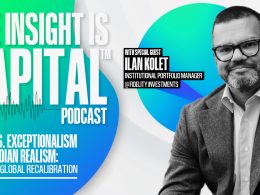Markets: Don’t Get Emotional
by Michael Nairne, Serious Money
Wednesday, June 20th, 2012
Emotional reactions may be natural but they are no route to wealth, says Michael Nairne.
With the developed world mired in slow growth and the eurozone teetering on the brink of disintegration, to many investors the future seems bleak. Some are so disheartened they are abandoning the stock market as a hopeless endeavour. Yet, one of the abiding tenets of investing is that investor sentiment is rarely predictive of the future.
Take the 1970s. At the cusp of that decade, investors gazed back fondly on an extraordinary stretch of global growth as the world rebuilt from the ashes of the Second World War. There were many bumps in the road, of course — five recessions, the Korean War, the Cuban missile crisis and the costly quagmire of the Vietnam war.
Bonds had been chronic weak performers as yields edged up from Second World War lows but high-teen stock returns had more than compensated investors. To buoyant investors, the future looked bright.
Out of the blue, in October 1973, the Organization of Petroleum Exporting Countries began an oil embargo in response to the Yom Kippur war. Massive shortages and soaring prices tipped the world economy into a deep recession. Investors reeled as U.S. stock prices plunged nearly 50%. Cost pressures and misguided monetary policy led to ever escalating inflation. Bond investors were crushed while U.S. stocks couldn’t keep pace with inflation.
By the end of the decade, many investors were fleeing stocks and bonds due to worries about hyperinflation. Like today, equity mutual funds suffered chronic outflows. Today, investors’ refuge is bonds; back then it was real estate, energy and gold. In August 1979, BusinessWeek published a now infamous article titled “The Death of Equities” that concluded inflation had “killed the U.S. equity market for millions of investors.” Pessimism reigned and the future seemed bleak.
Unexpectedly, in 1981, Paul Volcker, chairman of the U.S. Federal Reserve, throttled inflation with a heavy dose of punitively high interest rates — a policy that earned him scathing criticism as the U.S. economy plunged into another recession. Unbeknown to investors, sound monetary policy, low valuations and the president Ronald Reagan’s pro-business agenda had set the stage for a decade of superlative returns. US stocks earned nearly 18% annually in the 1980s while international stocks returned more than 22%, far outpacing Canada’s 12% average return. To the chagrin of inflation bugs, it was the market favourites, gold and oil, that crashed.
The 1990s saw investor optimism morph into euphoria as the Information Age dawned. U.S. stocks earned double-digit returns for a second decade while surprisingly Japan, the peerless economic miracle, went into a tailspin. Canadian investors eschewed their stuffy banks and boring resource companies and poured money into U.S. equity funds. Bonds were viewed as an investment for fuddy-duddies. In December 1999, a survey of U.S. investors revealed they expected stocks to return 19% annually over the next 10 years. The future seemed limitless.
In retrospect, the only thing limitless about that last decade was the severity of the setbacks. As the bursting of the tech bubble was followed by the unimaginable horror of 9/11, U.S. stocks plummeted nearly 50%. Stocks had barely recovered by 2007 when the storm of the global credit crisis swept through portfolios leaving a sea of red ink. For investors in U.S. and international stocks, it was a lost decade — returns were negative. It was the unpopular assets of the prior decade, Canadian stocks and bonds, that posted positive returns.
So far this decade, sovereign debt flareups and episodic economic weakness have sent repeated spasms through the markets. Canadian stock returns are barely positive while international and emerging market equities are in the red. Diversification has worked — bonds, U.S. equities, REITs and gold have all performed but it has been a tortuous grind.
Many investors, fatigued by the endless gloomy news and market volatility, are pessimistic about the future and forsaking stocks. That is too bad. If the experience of past decades has shown us anything, it is that investors’ emotions are a poor guide to the future.
-Michael Nairne, CFP, RFP, CFA, is the president of Tacita Capital Inc., a private family office and investment counselling firm in Toronto.











